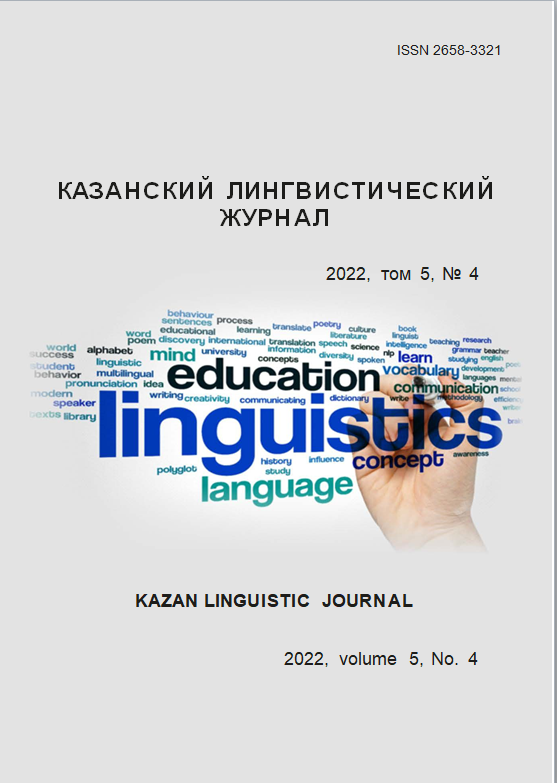Internet Meme in Foreign Language Education
https://doi.org/10.26907/2658-3321.2022.5.4.475-486
Keywords:
Internet meme, foreign language education, didactic tool, selection criteria, aspects of foreign language educationAbstract
The article is devoted to the issue of expanding the arsenal of didactic tools used in foreign language lessons with Internet memes. The authors substantiate the expediency of such an expansion, among other things, by the need to take into account the changed preferences of modern schoolchildren regarding sources and methods of obtaining information when organizing the process of foreign language education. The article contributes to the development of the issue of the potential of Internet memes in foreign language education. The authors give the main characteristics of memes, on which the range of possibilities for their use in foreign language lessons is based. Based on these characteristics, the authors come to the conclusion that the use of Internet memes in foreign language education is possible for the implementation of all four of its aspects: teaching, education, development, cognition. The article provides examples of the use of Internet memes taken from open sources for various purposes in foreign language lessons. As prerequisites for the effective use of memes, their selection, preliminary preparation and methodologically appropriate organization of mastering a foreign language, involving the motivation of students, removing possible linguistic and extralinguistic difficulties, taking into account the nature and structure of the developed speech skills, are declared. The article outlines the problems that require further research for the successful integration of Internet memes into the process of mastering a foreign language.
References
References
Guzaerova R.R. Internet meme as a sign of modern media space. Vestnik TGGPU. 2017;2(48). Available from: https://cyberleninka.ru/article/n/internet-mem-kak-znak-sovremennogo-mediaprostranstva [accessed 09.11.2022]. (In Russ.)
Zagoruiko A.O., Efremova M.A. The potential of using Internet memes as a teaching tool. Voprosy metodiki i prepodavaniya v vuze. 2019;8(28):12–21. (In Russ.)
Zinovieva N.A. Translation of sociocultural codes in the creation of an information product: analysis of Internet memes: dis. … cand. sociological Sciences. St. Petersburg; 2016. (In Russ.)
Ksenofontova V.I. The specifics of communication in conditions of anonymity: memetics, imageboards, trolling. Moscow: Internet i fol'klor. 2009:285–294. (In Russ.)
Marchenko N.G. Internet meme as a repository of cultural codes of the network community. Kazanskaya nauka. 2013;(1):113–115. (In Russ.)
Skrypnikova Yu.O. Memes in teaching a foreign language. Omsk: Basic issues of theory and practice of pedagogy and psychology. 2017:29–31. (In Russ.)
Tikhomirova M.S. Code switching in Internet memes: dis. … cand. philol. Sciences. Cherepovets; 2021. (In Russ.)
Chasovsky N.V. Internet meme as a special genre of communication. Uchenye zapiski Zabajkal'skogo gosudarstvennogo universiteta. 2015;2(61): 124‒127. (In Russ.)
Shchurina Yu.V. Internet memes as a phenomenon of Internet communication. Nauchnyj dialog. 2012;(3):161–173. (In Russ.)
Tsarkova V.B. Speech exercises as a means of developing speech skills: dis. … cand. ped. Sciences. Lipetsk; 1981. (In Russ.)
Stepashkina O.I. The use of the statistical component of the content in teaching foreign language speaking: the senior stage of the general education school, on the material of the German language: Abstract of the thesis. ... cand. ped. Sciences. M.; 2017. (In Russ.)
Passov E.I., Kuzovleva N.E. Foreign language lesson. Rostov-n/D: Phoenix; Moscow: Glossa-Press; 2010. (In Russ.)






